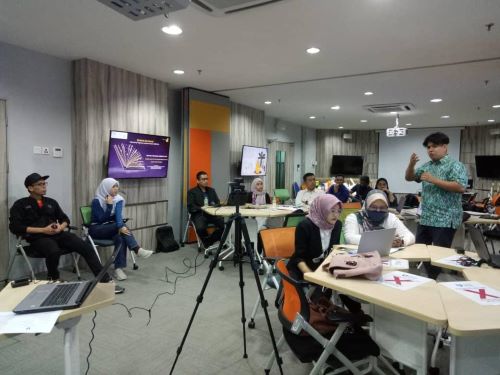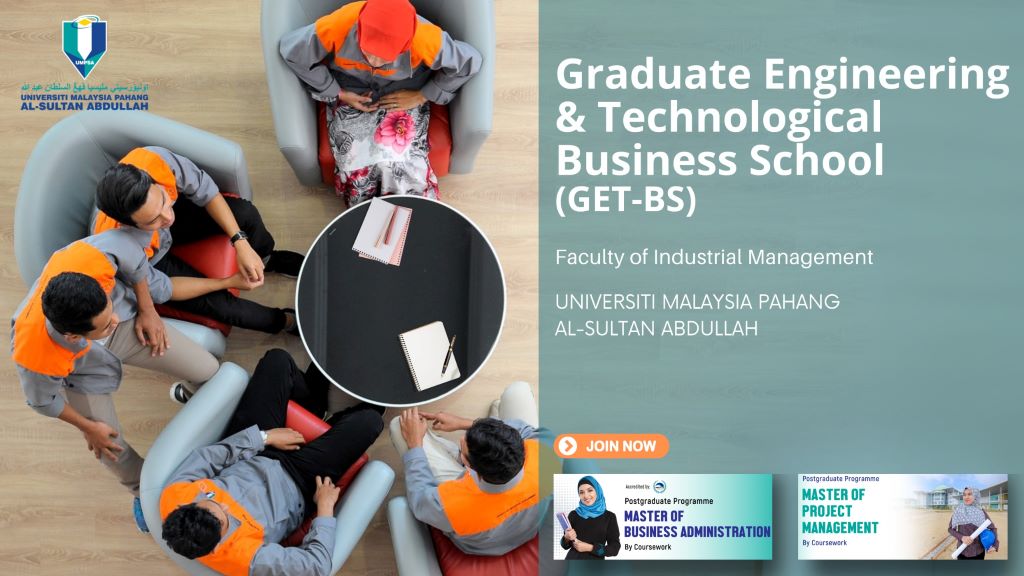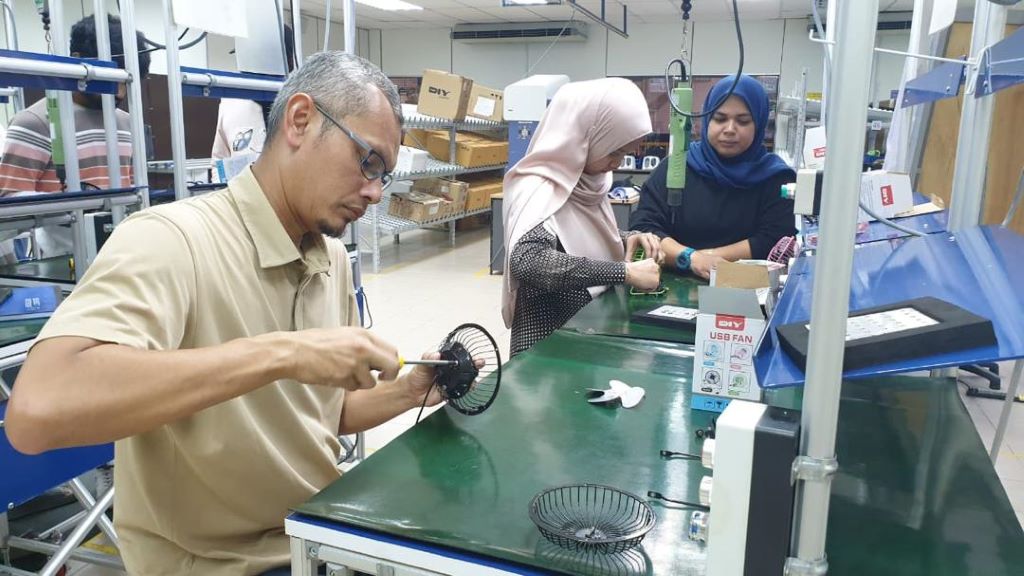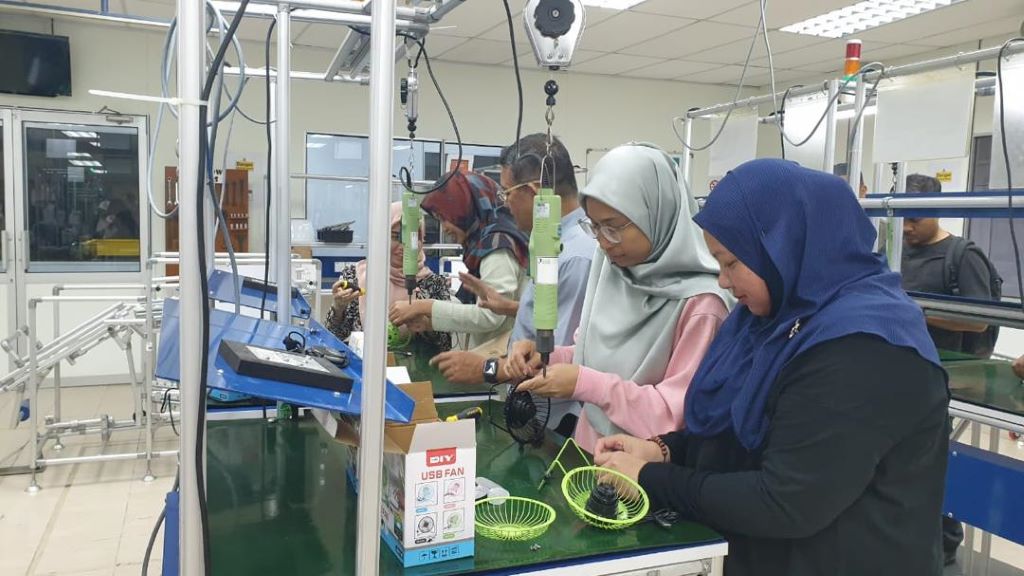UMPSA to establish first Graduate School in Malaysia’s TVET Ecosystem
PEKAN, 20 December 2024 – Universiti Malaysia Pahang Al-Sultan Abdullah (UMPSA) will soon establish the Graduate Engineering & Technological Business School (GET-BS), making it the first graduate school in Malaysia based on the TVET ecosystem.
This institution will serve as a graduate school focusing on management and business, with an emphasis on technology and engineering elements.
According to Professor Ts. Dr Aida Mustapha, who is exercising the function of the Vice-Chancellor of UMPSA, the establishment of GET-BS under the Faculty of Industrial Management (FPI) aims to produce future business leaders capable of driving technological transformation with innovation while upholding sustainability and social responsibility goals.
“GET-BS will offer academic programmes, training, research, and consultancy services with an emphasis on Sustainable Business Innovation and Advanced TVET,” she said.
Advanced TVET in the context of GET-BS encompasses management and entrepreneurial skills to manage high-tech ecosystems, not just focusing on technology but also covering aspects of human resources, stakeholders, and the community.
Additionally, the GET-BS curriculum will be integrated with the principles of Environmental, Social, and Governance (ESG) to strengthen the management of high-tech ecosystems.
GET-BS will also provide students with opportunities to interact directly with UMPSA researchers, industry players, and the community.
This approach aims to encourage students to produce innovative projects in the form of products and services, thereby enhancing their role as creators, developers, and innovators.
Professor Ts. Dr Aida further explained that the establishment of GET-BS will also be supported by UMPSA’s 11 clusters of expertise, including smart campus, sustainable energy, vehicular technology, material science, industrial biotechnology, fine and specialty chemicals, management and social science, agriculture and food security, rare earth, petrochemical, and construction.
“With the establishment of GET-BS, UMPSA will intensify its agenda in sustainability development to support the Sustainable Development Goals (SDG),” she added.

Meanwhile, the Deputy Vice-Chancellor (Academic and International Affairs), Professor Dato’ Ir. Ts. Dr Ahmad Ziad Sulaiman, stated that the MTUN Advanced TVET 2030 Strategic Plan provides a strong framework for technical universities like UMPSA to drive higher education towards flexibility, innovation, and technological integration.
“As part of MTUN, UMPSA is committed to achieving the target of increasing TVET student enrolment to 150,000 by 2030, in line with efforts to expand access to education that meets the needs of the global industry.
“With the GET-BS initiative, which integrates the TVET ecosystem with sustainable business innovation, we will support the comprehensive objectives of the MTUN Advanced TVET 2030 agenda, including implementing innovative teaching and learning (T&L) methods such as micro-credentials, global classrooms, metaverse-based course development, and the provision of open and distance learning (ODL) programmes at GET-BS.
“This strategic investment is not only intended to meet current industry demands but also to prepare graduates for the complexities of the future workforce,” he said.
He further added that by maintaining the momentum of innovation and dedication, UMPSA is confident in establishing the first business school in Malaysia based on the TVET ecosystem as a foundation of academic excellence and national human capital development, aligned with the aspirations of the MTUN Advanced TVET 2030 agenda.
“The university expresses its gratitude to the Ministry of Higher Education (MOHE), particularly the Department of Higher Education (JPT), for their support in approving the establishment of GET-BS,” he concluded.
By: Mimi Rabita Abd Wahit, Centre for Corporate Communications
Translation by: Dr. Rozaimi Abu Samah, Faculty of Chemical and Process Engineering Technology
- 62 views












